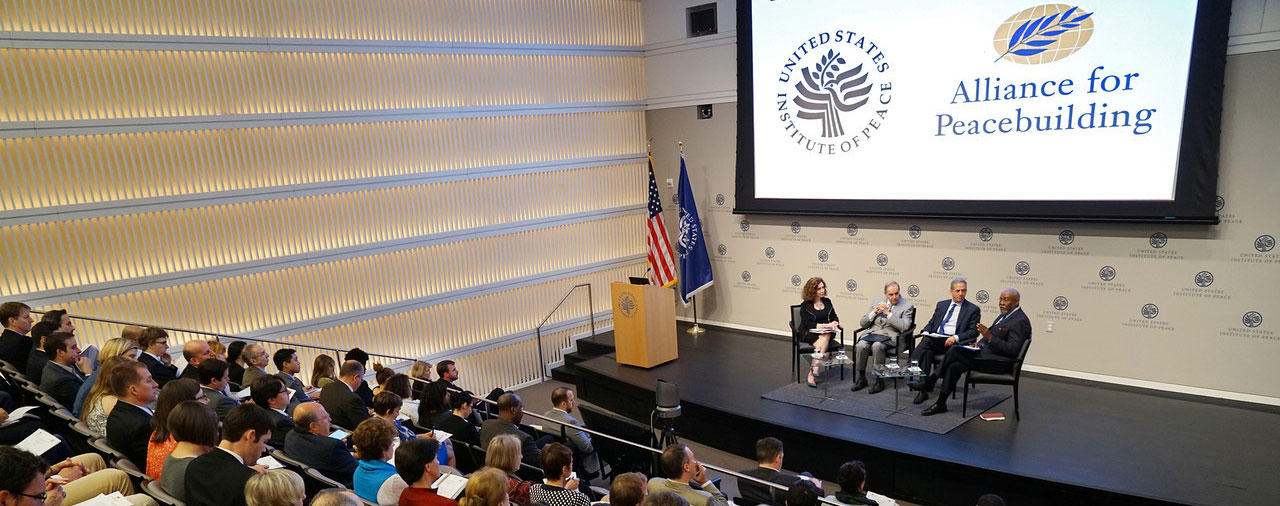Exploring New Frontiers in Peacebuilding
Read the Event CoverageThe U.S. Institute of Peace and the Alliance for Peacebuilding hosted a day-long event to explore emerging trends and new frontiers in the field of peacebuilding, including cross-border criminal violence, new approaches to complex conflict environments, and the technology revolution and its impact on our field.

The U.S. Institute of Peace (USIP) co-sponsored the first day of the 2014 Alliance for Peacebuilding Annual Conference, “Exploring New Frontiers in Peacebuilding.”
The Alliance for Peacebuilding (AfP) is a global membership association of nearly 80 peacebuilding organizations, 1,000 professionals and a network of more than 15,000 people developing processes for change in the most complex, chaotic conflict environments around the world. The annual conference brings together AfP members and individuals from the broader peacebuilding community to discuss pressing issues in the field and develop collaborative initiatives.
Participants explored emerging trends and new frontiers in peacebuilding, including cross-border criminal violence, new approaches to complex conflict environments, the technology revolution and its impact on our field, and the effective use of storytelling in peacebuilding. The most up-to-date agenda details the wide range of speakers that discussed these topics.



